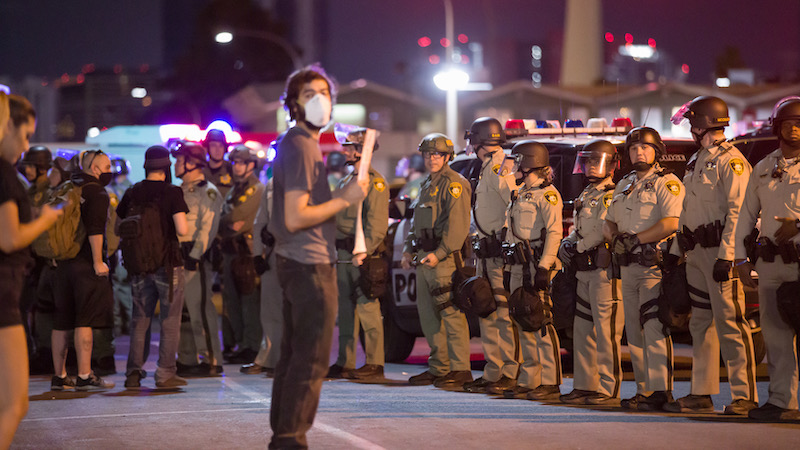On March 12th, New Jersey declared that Tesla Motors, a leading purveyor of electric cars, could no longer sell its vehicles in the state, effective April 1st. This is an unfortunate development for lovers of the free market.
Beyond its innovations in car making, Tesla has worked to disrupt the car dealerships that serve as a go-between from consumers to automakers. It bypasses these middlemen through Apple-like showrooms that sell vehicles directly to future drivers. As a result, Tesla owns its brand and product from beginning to end.
Why haven’t other carmakers done the same? Why don’t we see Chevy dealerships owned by GM itself? What seem like market irregularities like this are often not accidents—and this is no exception. Decades ago, car makers inked agreements with dealerships that guaranteed the purchase of a set amount of autos in return for exclusive rights to sell in certain territories. In the years since, car dealerships have worked with state governments across the country to pass and enforce a complex web of regulations that assure they are the only approved route for new cars to get into consumer’s driveways.
[pq]Industries that embrace destructive change will be rewarded in time. That much we can be assured of.[/pq]
Even though this arrangement has remained true in the auto sector for decades, the Information Age has systematically disrupted middlemen and entrenched interests in numerous other industries. Consumers have more or less benefited from this march of competition. We should not be surprised that markets are hungry for more creative destruction. We also should not be shocked when threatened industries fight back or hope to use the state as a cudgel against their competitors.
Think what you will of Tesla, but New Jersey’s new regulation is not a move friendly to the forces of competition. As James Appleton, president of the New Jersey Coalition of Automotive Retailers said, “Tesla’s business model crushes competition.” Exactly. It crushes the sort of friendly competition dealerships have long enjoyed.
In some ways, New Jersey is being unfairly singled out. Texas, of all places, has limited Tesla from direct selling. So too has Arizona, Colorado, and Virginia. This is not an isolated incident. Car dealers are worried what Tesla’s competition may mean to them. And they are willing to pull the levers of the state to make their point.
Dealerships have long embraced an all-American image of baseball and apple pie. They play an outsized role in local activities and regional employment in a way that makes them bulwarks of community. This is now the image dealerships are wrapping themselves in. And while this isn’t necessarily an untrue picture, we should rightfully ask whether avoiding the specter of competition and structural reform are the best means through which to provide employment and community.
Dealerships are also pointing to the need for consumer protection, which they provide through their in-person sales teams. I’m sure this is why Americans prefer visiting their dentist over a trip to the local car lot. Consumers don’t feel any more protected by entrenched dealerships than they do by taxi commissions, which deploy a similar argument in their fight against services like Uber and Lyft.
Yet, I don’t think Tesla or free markets are in jeopardy through the actions of a few states. There’s something much larger afoot that’s a direct product of the new Industrial Age we are living in. Industries that embrace destructive change will be rewarded in time. That much we can be assured of. Let’s just hope car dealers realize it sooner versus later.


